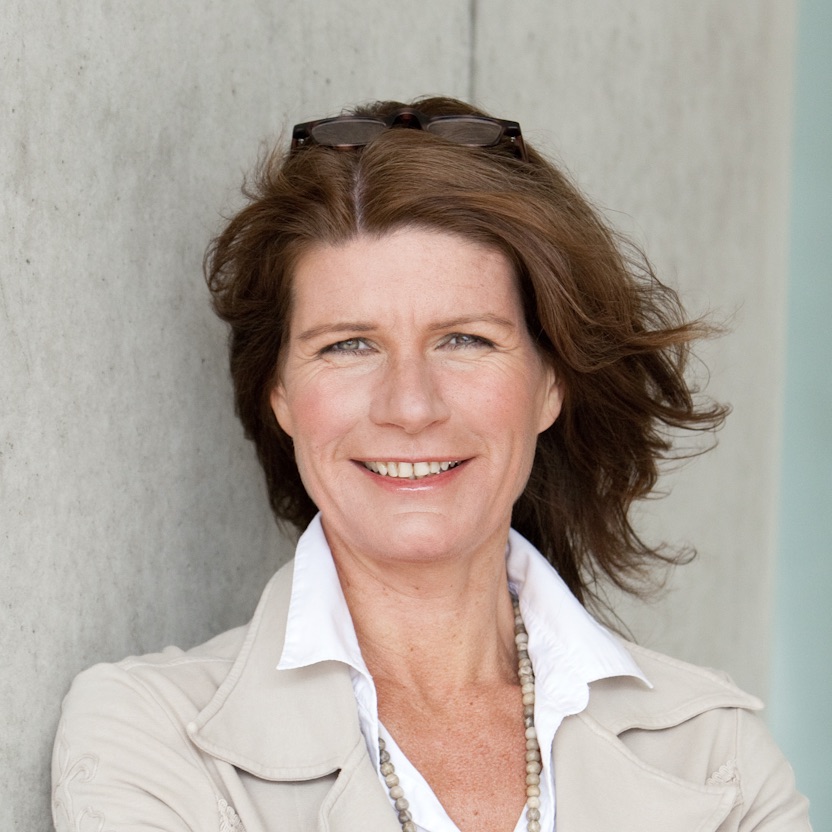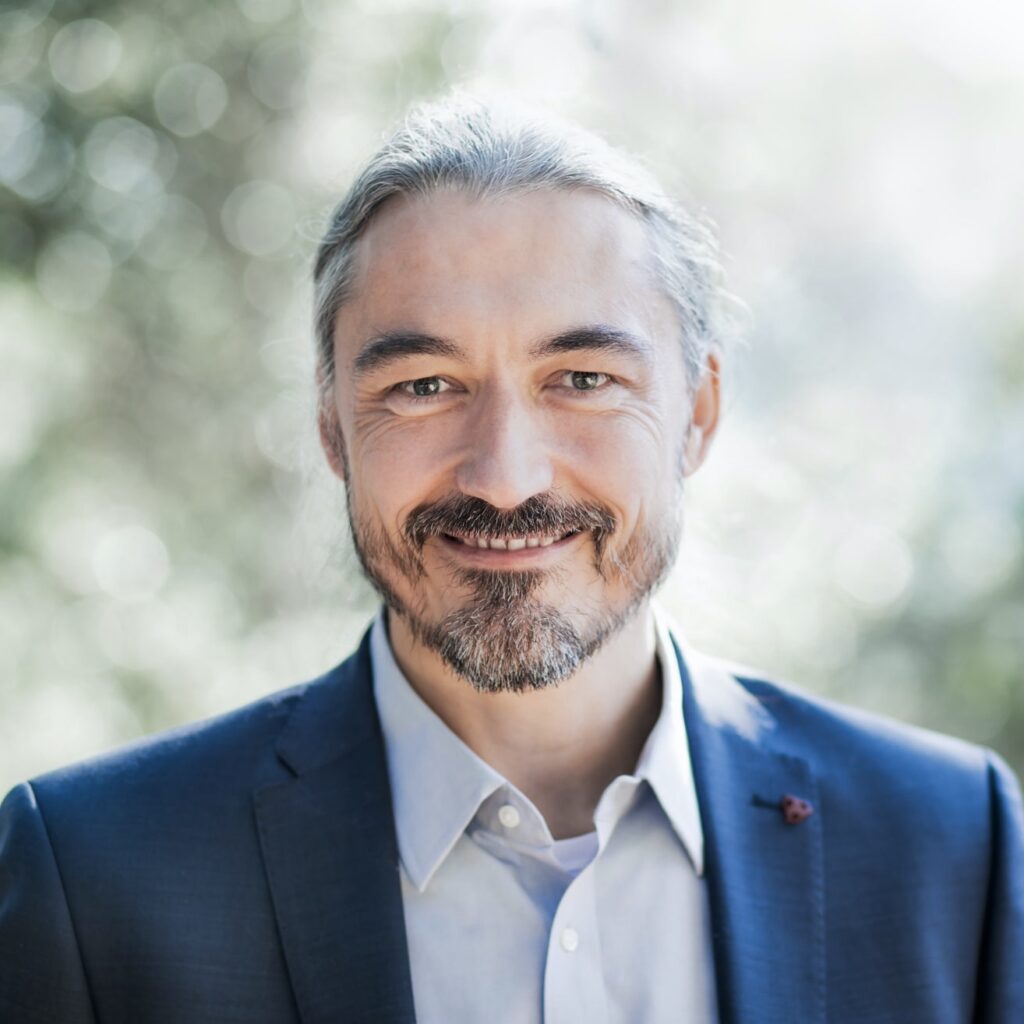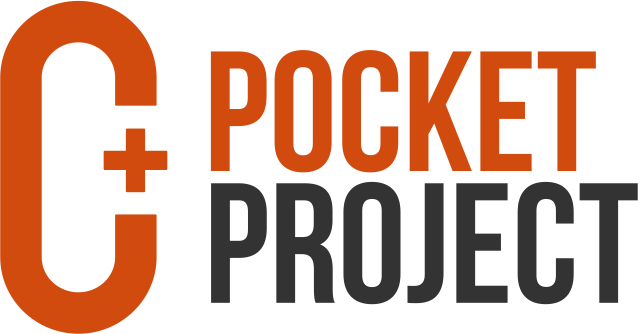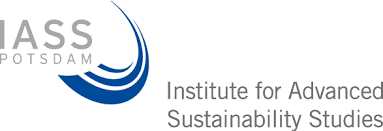Overcoming Polarisation in Crises
Online-Workshop mit Thomas Hübl vom 28. April bis 1. Mai 2022
– DIE VERANSTALTUNG FINDET AUF DEUTSCH OHNE ÜBERSETZUNG STATT –
Beginn: Donnerstag, 28 April – 19.30 Uhr / Ende: Sonntag, 1. Mai – 13.00 Uhr >>Zeitplan
A cooperation of Mehr Demokratie & Pocket Project
In recent years, we are experiencing a rapid development of interconnected crises. In this situation, it is important to also recognize the hidden forces in our social structure: the individual, intergenerational and collective traumas. In crises, invisible wounds of the past are activated and lead to social fragmentation and polarization. The Corona crisis, coupled with the climate crisis, now exacerbated by the war in Ukraine, challenges our democracies to overcome polarization, find direction, and collectively take appropriate action.
In a collaboration between the Pocket Project and the German non-governmental organization Mehr Demokratie, we offer an online workshop led by Thomas Hübl to support and deepen mutual awareness and understanding across societal divides.
We will explore individual, intergenerational and collective trauma based on current crises and societal polarization, and practice a collective trauma integration process as developed by Thomas Hübl and applied in the work of the Pocket Project.
The process will be scientifically supported by the Cynefin Centre, the Institute for Transformative Sustainability Research (IASS) and the Institute for Integral Studies (IFIS).
Collective Trauma & Democracy
A Conversation between Claudine Nierth & Thomas Hübl
11 April from 8-9.30pm CET
– THE CONVERSATION IS HELD IN GERMAN WITH ENGLISH TRANSLATION –
Free kick-off event for the workshop in April/May.

Claudine Nierth is a political activist and artist and has been campaigning for direct democracy and citizen participation for years. She is the federal board spokesperson for the organization Mehr Demokratie. She initiated several referendums as well as the first two nationwide citizens’ councils for the 2021 Bundestag, among others. In 2018, she received the Federal Cross of Merit from German President Frank-Walter Steinmeier for her commitment. In the fall of 2021, she published her book, DIE DEMOKRATIE BRAUCHT UNS! – Für eine Kultur des Miteinander, published by Goldmann Verlag.

Thomas Hübl‘s work combines the most important teachings of the great wisdom traditions with insights from modern science and, thanks to his profound understanding, makes both understandable and tangible. His work combines transformation and integration of trauma and unconscious parts, somatic sensitization, advanced meditative practice, and sophisticated analysis of cultural architecture. He supports people in achieving a deeper level of awareness and centeredness, unfolding their potential and becoming able to effectively co-create society.
Since 2004, Thomas has held workshops, multi-year training programs and integration processes for Collective Trauma. His book ‘Healing Collective Trauma’ was translated from English in 2021. He is regularly invited as a guest speaker to conferences around the world.
“We are able to have a disagreement with someone while remaining deeply related. Having opposing points of view doesn’t mean that I need to disconnect from the other person’s experience. It’s not what we discuss that is painful, it’s how we talk to each other. How can I expect people to listen to me if I talk to them without feeling them?”
Thomas Hübl, Pocket Project
What does collective trauma have to do with democracy?
In crises, pre-existing individual and collective traumas are often activated and limit the democratic scope for action and the ability to responsibly seek solutions. As a society, we are faced with the challenge of becoming aware of the particular dynamics a crisis brings up.
In this workshop, we will examine the current cumulative display of crises. The focus will be on individual work in public conversation with Thomas Hübl. While each individual opinion will be respected, the competence of the process leader is to respectfully bring all participants to be able to see the origins of their own experiences with more precision and clarity.
Trauma is a split-off experience from overwhelming past situations. As long as we do not touch the origin, this energy is transferred as a filter that we look through onto today’s situations. Individual work can help to make this filter more conscious. Through the individual processes in the context of the group, a collective process is set in motion. The ensuing impulses are then further discussed and processed in small groups and culminate in a joint reflection of all participants.
Therapeutically trained assistants are available.
“We have to include insights into resonance, emotions and subconscious aspects if we want to create spaces of listening and find new solutions. Deeply listening means to look behind the words. We need to be sensitive to what moves the other person beyond factual arguments.”
Anne Dänner, Mehr Demokrate e.V.
“Diversity of opinion in our societies is an integral part of democracy. But when polarization casts doubt on the democratic framework itself, social cohesion is threatened. Mehr Demokratie searches for ways to improve people’s participation and for new forms of social exchange and political culture. It is one secret of our success that we explore new fields of experience and provide process-models for others.”
Claudine Nierth, Mehr Demokratie e.V.

The integration process for Collective Trauma
The goal of a Collective Trauma Integration Process is to bring traumatic contents that have been individually, historically and collectively split off back into consciousness. Over time, processing and integration of the contents can occur, ultimately enabling a restoration of the collective relational field.
An essential part of this process is the strengthening of trust, cohesion and compassion in the group. This can begin with a relaxation of one’s nervous system, which allows resonance with others and deeper listening. Once resonance and co-regulation is enabled, sensations and experiences related to trauma fields can also be brought into contact. This, in turn, strengthens communication and empathy with one another and promotes the emergence of a social healing process. Together, we release some of the split-off social intelligence. We thus create conditions for a creative and connected global culture and a sustainable and participatory democratic future.
THE 6 CORE STAGES OF THE INTEGRATION PROCESS
GROUP COHERENCE
Develop the group's relational and communication skills, deepening compassion and humanity. Deepening access to personal and cultural resources to strengthen resilience in the face of contact with traumatic content.
ColleCtive Trauma LANDSCAPE
Aligning our attention to previously split off content, and allowing deeper experiences and information to rise. Perceiving the symptoms of our unconscious resistance and repression and discharging the first contents.
Trauma CONDITIONING
Deepening understanding of how we as individuals and as a collective have been shaped by trauma. We begin to trace the voices of individuals back to their roots and see the trauma landscape of our culture and institutions shining through behind the polarization.

THE COLLECTIVE VOICE
Together we listen to the essence of what we experience and recognize here together. Through the words of individuals we touch on historical and collective qualities and experience the interconnectedness of collective trauma.
Clarification & Integration
Here, the integration of experiences often takes place in small groups. There is enough time to address the personal ancestral path. Post-traumatic learning begins.

meta-learning & restoring
What we and our ancestors have experienced in terms of trauma is part of us. It is the task of all of us to ensure that the damage done at the time is compensated. First steps of recovery and social change are visible as potential....
Workshop LEADER
Thomas Hübl
Workshop Leitung
Thomas Hübl‘s work combines the most important teachings of the great wisdom traditions with insights from modern science and, thanks to his profound understanding, makes both understandable and tangible. His work combines transformation and integration of trauma and unconscious parts, somatic sensitization, advanced meditative practice, and sophisticated analysis of cultural architecture. He supports people in achieving a deeper level of awareness and centeredness, unfolding their potential and becoming able to effectively co-create society.
Since 2004, Thomas has held workshops, multi-year training programs and integration processes for Collective Trauma. His book ‘Healing Collective Trauma’ was translated from English in 2021. He is regularly invited as a guest speaker to conferences around the world.
Team
Roman Huber
project management
Roman Huber
is a social entrepreneur and has been working to further the development of democracy for 25 years.
Roman was initially active in the IT industry, has been a member of the federal executive board of Mehr Demokratie e.V.
since 1996, and since 2001 has been its managing director. He lives and works in the community project www.schloss-tempelhof.de, which he
co-founded and built. He has co-initiated several constitutional appeals, nationwide
campaigns as well as the first two country wide citizen councils among other things for the German Parliament in 2021. His interest is in new structures that make collective intelligence effective
intelligence, so that the knowledge and skills of individuals can be combined to form a superordinate pattern.
Kosha Joubert
project management
Kosha Joubert serves as CEO of the Pocket Project. She holds an MSc in Organisational Development, is an international facilitator, author, coach and consultant, and has worked extensively in the fields of sustainable development, curriculum development and intercultural collaboration. Kosha grew up in South Africa under Apartheid and has been dedicated to the healing of divides and collective trauma ever since. Kosha has received the Dadi Janki Award for engaging spirituality in life and work and the One World Award for her work with the Global Ecovillage Network. She serves as host and mentor on Thomas’ online courses, co-moderated two Celebrate Life Festivals and was a co-host of the 2019 and 2020 Online Summit on Collective Trauma.
Dieter Halbach
Public Relations
Dieter Halbach is editor-in-chief at Mehr Demokratie: demokratie! Magazine for Participation and Direct Democracy
Sociologist, journalist and author, community founder and researcher, musician.
His goal is to enable co-creative processes and participation in politics and to reconcile inner and outer spaces of democracy.
Anne Volborn
project assistance
Anne Vollborn joined the Pocket Project e.V. as project manager in November 2019. Anne has 16 years of experience in event management, in industry and commerce, as well as the public sector. She previously worked as event manager in Berlin for a start-up organization working on sustainable urban farming and aquaponic systems.
Anne holds a certificate in pre-, peri- and postnatal shock and trauma therapy.
She has organized large-scale events focused on healing collective trauma for Thomas Hübl since 2006 and has been part of the organizing team of the annual Celebrate Life Festival in Germany for the past 14 years.
Anne Caspari
RESEARCH
Anne Caspari has an MSc in Environmental Planning and has worked in
many different countries on nature rehabilitation and sustainability projects. In
working with ecosystems, she can rely on a solid body of knowledge of how complex
adaptive systems work and what tends to get in the way of self-organizing
processes. 20 years ago, she started a parallel track, taking a deep dive into
consciousness training, integral theory, adult development, and coaching, adding
humans to the equation, which has since become her main profession. In her work
with individuals and organizations, she specialises in transformational processes,
change and leadership. Getting exposed to Cynefin and complexity thinking years
ago was a natural fit for her and her practice. She is an experienced trainer and
facilitator. She has her own company and works closely with The Cynefin Company
and runs SenseMaker projects as a complexity-fit approach to making meaning and
facilitating change in larger collectives, complementing developmental approaches.
Anne is familiar with Thomas Hübl’s work.
Elke Fein
RESEARCH
Elke Fein is a political and social scientist. Her areas of Work: Russian Studies, political culture, political sociology, adult development and its relevance for politics and society. She is co-founder and managing director of IFIS, director of the Center for Integral Politics and project coordinator of Leadership for Transition (LiFT).
Judith Strasser
RESEARCH
Judith Strasser is a psychologist with
several years of work experience in the context of trauma work in post-conflict countries
and research in the field of trauma and transitional justice & psychosocial counseling in the context of flight and migration in Germany.
Kazuma Matoba
RESEARCH
Kazuma Matoba is Apl.-Professor for Intercultural Education and Communication at Witten/Herdecke University, co-founder of Institute for Global Integral Competence e.V.
He was born in Kobe/Japan. He studied western and eastern philosophy, European and Japanese Linguistics, Johrei (Japanese medicine). After his PhD in Linguistics in Germany he was interested in dialogical philosophy by Martin Buber and David Bohm.
He has facilitated many dialogue processes in Germany, Japan, China, Switzerland and USA. His research topics are cultural diversity, cosmopolitan communication, third-culture building, refugee crisis, and global social witnessing. The last topic is his life-long research theme because he has asked a question “how can human being feel more interconnected consciously” since more than 30 years.
Adrian Wagner
RESEARCH
Adrian Wagner is co-initiator of the Black Forest School of Metamodernism and expert at the Institute of Transformational Leadership Berlin. Currently, part of the AIS Graduate program working on a Ph.D. about collective trauma integration and teaching metamodernism at Witten/Herdecke University and the European School of Governance. Trespassing from time to time into the wild fields of art. Current projects include the creation of a decentralized, autonomous installation between collective shadows, artificial intelligence, philosophy, and poetry funded by the Seeds DAO. He is passionately navigating the emergent metamodern ‘structure of feeling’ into an embodied practice for cosmo-local governance and transformation.
Niko Schäpke
RESEARCH
Niko Schäpke is an assistant professor for Environmental Governance at the University of Freiburg. He is an interdisciplinary social scientist. His work is centered in the field of solutions-oriented sustainability science, focusing the understanding and facilitation of societal transformations to sustainability. Therein, and combining theoretical and empirical perspectives, Niko works on settings, methods and principles of transdisciplinary collaboration between science and practice, on dynamics of human agency and spaces for societal learning and change. Niko is driven by a passion to advance sustainability science in its capacity to contribute to societal transformation.
Anne Huhn
SUPERVISION ASSISTANT TEAM
Anne Huhn is a psychologist and psychotherapist and has worked for over 30 years with people in crisis and psychological stress situations.
With her work she offers spaces in which it becomes possible – for individuals and systems – to heal injuries, to unfold potentials, self-healing powers and own resources and to expand consciousness.
She is trained in various aspects of humanistic therapy conversational psychotherapy, behavioral therapy, integrative body therapy, mindfulness-based psychotherapy, trauma therapy(PITT).
Heidi Wohlhüter
SUPERVISION ASSISTANT TEAM
Heidi Wohlhüter is a certified psychotherapist (behavioral therapist) (DGVT) and supervisor (DGVT), as well as a licensed child and youth psychotherapis
She has been working for 20 years in a psychiatric day clinic and has been offering psychotherapeutic group and individual sessions in private practice for 10 years. Heidi also works as a supervisor for therapists, psychologists and treatment teams and in the training of psychotherapists she leads the self-awareness seminars. Heidi’s mission is to create a space in which healing can happen.
Heidi is a member of Thomas Hübl’s Inner Science Training Group. She was an assistant in Timeless Wisdom Trainings 4 & 5 and is currently assisting in the 6th training. She is part of the research group “Mysticism and Healing” and gives workshops and supervision in this context. Heidi leads the practice group “Transparent Communication” in Aachen.
In cooperation with the Institute for Integral Studies (IfiS), its EU project Leadership for Transition (LIFT) Politics, the Cynefin Centre and the Institute for Advanced Sustainability Studies e.V. (IASS):








